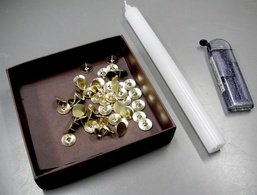
Intrigued by the WSJ article, I ordered Pennebaker’s book, The Secret Life of Pronouns. It won the 2012 Media Book Prize from the Society for Personality and Social Psychology, a division of the American Psychological Association. When the book arrived, my wife jokingly commented, “Aha, I see you’re studying secret lives now.” Pennebaker’s work is insightful and important (and he is a good writer).
So how can you tell who has higher status in a social group? People of higher social status usually have more influence. Decades of research show pronouns are good predictors of status:
- People of higher social status use “I”, "me", "my" less frequently.
- People lower in status are more likely to use “I”, “me”, or “my”.
- People higher in status use “we”, “us”, or “our” more than those of lower status.
- People higher in status use “you” or “your” more frequently than those of lower status.
Pennebaker, J. W. (2011). The secret life of pronouns: What our words say about us. New York: Bloomsbury Press.
Image from UT-Austin by Utnomi, retrieved from http://commons.wikimedia.org/wiki/File:UT-Austin-Tower.jpg Used with permission.
© John Ballard, PhD, 2015. All rights reserved.
__________________________
Author of Decoding the Workplace.
"Decoding the Workplace: 50 Keys to Understanding People in Organizations is as informed and informative a read as it is thoughtful and thought-provoking. . . . An absolute 'must' for community, corporate, and academic library Business Management Studies collections, Decoding the Workplace should be considered critically important reading for anyone working in a corporate environment." —Midwest Book Review
Available at leading online bookstores such as Amazon.com
________________________
Follow me on Facebook at https://www.facebook.com/johnballardphd
On Twitter: @johnballardphd



 RSS Feed
RSS Feed